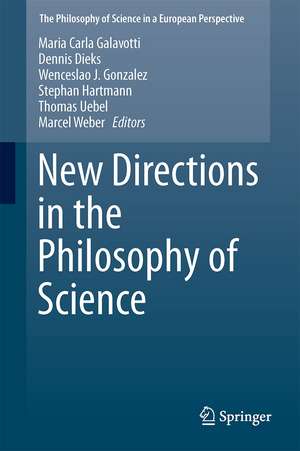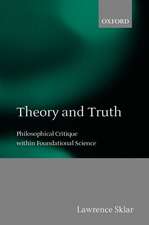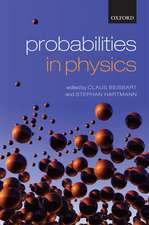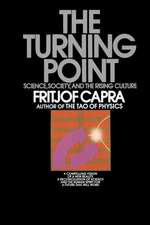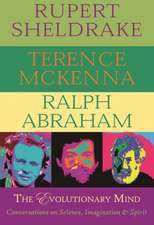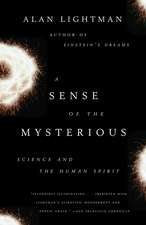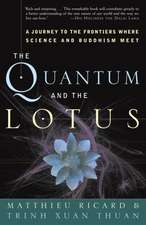New Directions in the Philosophy of Science: The Philosophy of Science in a European Perspective, cartea 5
Editat de Maria Carla Galavotti, Dennis Dieks, Wenceslao J. Gonzalez, Stephan Hartmann, Thomas Uebel, Marcel Weberen Limba Engleză Hardback – 20 iun 2014
| Toate formatele și edițiile | Preț | Express |
|---|---|---|
| Paperback (1) | 1327.84 lei 38-44 zile | |
| Springer International Publishing – 17 sep 2016 | 1327.84 lei 38-44 zile | |
| Hardback (1) | 1338.79 lei 38-44 zile | |
| Springer International Publishing – 20 iun 2014 | 1338.79 lei 38-44 zile |
Preț: 1338.79 lei
Preț vechi: 1761.57 lei
-24% Nou
Puncte Express: 2008
Preț estimativ în valută:
256.23€ • 266.47$ • 214.41£
256.23€ • 266.47$ • 214.41£
Carte tipărită la comandă
Livrare economică 11-17 martie
Preluare comenzi: 021 569.72.76
Specificații
ISBN-13: 9783319043814
ISBN-10: 3319043811
Pagini: 773
Ilustrații: XII, 773 p. 22 illus.
Dimensiuni: 155 x 235 x 48 mm
Greutate: 1.27 kg
Ediția:2014
Editura: Springer International Publishing
Colecția Springer
Seria The Philosophy of Science in a European Perspective
Locul publicării:Cham, Switzerland
ISBN-10: 3319043811
Pagini: 773
Ilustrații: XII, 773 p. 22 illus.
Dimensiuni: 155 x 235 x 48 mm
Greutate: 1.27 kg
Ediția:2014
Editura: Springer International Publishing
Colecția Springer
Seria The Philosophy of Science in a European Perspective
Locul publicării:Cham, Switzerland
Public țintă
ResearchCuprins
Preface: Maria Carla Galavotti.- TEAM A: FORMAL METHODS.- Chapter 1: Things in Possible Experiments. Case-intensional Logic as a Framework for Tracing Things from Case to Case; Thomas Müller.- Chapter 2: The Proof Is in the Process. A Preamble for a Philosophy of Computer-assisted Mathematics; Liesbeth de Mol.- Chapter 3: The Future Role of Computation in Science and Society; Patrick Suppes.- Chapter 4: In No Categorical Terms: A Sketch for an Alternative Route to a Humean Interpretation of Laws; Kerry McKenzie.- Chapter 5: The Undeniable Effectiveness of Mathematics in the Special Sciences; Mark Colyvan.- Chapter 6: Comment on “The Undeniable Effectiveness of Mathematics in the Special Sciences”; Tim Räz.- TEAM B: PHILOSOPHY OF THE NATURAL AND LIFE SCIENCES.- Chapter 7: Explanatory Pluralism in Psychiatry: What Are We Pluralists about, and Why? Raffaella Campaner.- Chapter 8: Pluralists about Pluralism? Different Versions of Explanatory Pluralism in Psychiatry; Jeroen van Bouwel.- Chapter 9: Shifting Attention from Theory to Practice in Philosophy of Biology; C. Kenneth Waters.- Chapter 10: Living Instruments and Theoretical Terms: Xenografts as Measurements in Cancer Research; Pierre-Luc Germain.- Chapter 11: Developmental Explanation; Veli-Pekka Parkkinen.- Chapter 12: What Counts as Causation in Physics and Biology? Jan Faye.- Chapter 13: Challenges to Characterizing the Notion of Causation across Disciplinary Boundaries: Comment on Faye; Jan Baedke.- Chapter 14: Just Complexity; Max Urchs.- Chapter 15: Confessions of a Complexity Skeptic; Raphael Scholl.- Chapter 16: New Directions in the Philosophy of Biology: A New Taxonomy of Functions; Cristian Saborido.- TEAM C: PHILOSOPHY OF THE CULTURAL AND SOCIAL SCIENCES.- Chapter 17: How Essentialism Properly Understood Might Reconcile Realism and Social Constructivism; Wolfgang Spohn.- Chapter 18: Social Construction – byWhom? Matti Sintonen.- Chapter 19: Is Social Constructivism Soluble in Critical Naturalism? Daniel Andler.- Chapter 20: Scientific Representation, Reflexivity, and the Possibility of Constructive Realism; Tarja Knuuttila.- Chapter 21: The Limits of Realism in the Philosophy of Social Science; David-Hillel Ruben.- Chapter 22: The Social Re-Construction of Agency; Katarzyna Paprzycka.- Chapter 23: Local Realism. An Analysis of Social Choice Theory; Obdulia Torres.- Chapter 24: Objectivity and Visual Practices in Science and Art; Chiara Ambrosio.- Chapter 25: Cultural Information: Don’t Ask, Don’t Tell; Tim Lewens. TEAM D: PHILOSOPHY OF THE PHYSICAL SCIENCES.- Chapter 26: Introducing QBism; Christopher A. Fuchs.- Chapter 27: A Critic Looks at QBism; Guido Bacciagaluppi.- Chapter 28: Elementary Particles and Metaphysics; F.A. Muller.- Chapter 29: Assessing the Status of the Common Cause Principle; Miklós Rédei.- Chapter 30: A Note on Strong Causal Closedness and Completability of Classical Probability Spaces; Leszek Wroński and Michał Marczyk.- Chapter 31: Artificial Examples of Empirical Equivalence; Pablo Acuña.- Chapter 32: The Measurement Problem is Your Problem Too; Ronnie Hermens.- Chapter 33: Pros and Cons of Physics in Logics; Petr Švarný.- Chapter 34: How Fundamental Physics Represents Causality; Andreas Bartels and Daniel Wohlfarth.- Chapter 35: How Fundamental Physics Represents Causality. Comment; Mario Hubert and Roland Poellinger.- Chapter 36: Good Just Isn’t Good Enough - Humean Chances and Boltzmannian Statistical Physics; Claus Beisbart.- Chapter 37: Unsharp Humean Chances in Statistical Physics: A Reply to Beisbart; Radin Dardashti, Luke Glynn, Karim Thébault and Mathias Frisch.- Chapter 38: Noncommutative Causality in Algebraic Quantum Field Theory; Gábor Hofer-Szabó.- Chapter 39: Lost in Translation. A Comment on “Noncommutative Causality in Algebraic Quantum Field Theory”; DustinLazarovici.- Chapter 40: Causal Probabilities in GRW Quantum Mechanics; Tomasz Placek.- Chapter 41: Physics, Metaphysics and Mathematics; Dennis Dieks.- TEAM E: HISTORY OF THE PHILOSOPHY OF SCIENCE.- Chapter 42: Where Would We Be without Counterfactuals? Huw Price.- Chapter 43: Pragmatism and European Philosophy: William James and the French-Italian Connection; Massimo Ferrari.- Chapter 44: European Pragmatism? Further Thoughts on the German and Austrian Reception of American Pragmatism; Thomas Uebel.- Chapter 45: New Prospects for Pragmatism: Ramsey’s Constructivism; Maria Carla Galavotti.- Chapter 46: Critical Realism in Perspective – Remarks on a Neglected Current in Neo-Kantian Epistemology; Matthias Neuber.- Chapter 47: Realism without Mirrors; Henrik Rydenfelt.- Chapter 48: The Continuing Relevance of 19th-Century Philosophy of Psychology: Brentano and the Autonomy of Psychological Methods; Uljana Feest.- Chapter 49: On the Logical Positivists’ Philosophy of Psychology: Laying a Legend to Rest; Sean Crawford.- Chapter 50: Epistemology Historicized: The French Tradition; Anastasios Brenner.- Chapter 51: Commentary on Brenner’s “Epistemology Historicised”; Cristina Chimisso.- Chapter 52: History and Philosophy of Science: Between Description and Construction; Friedrich Stadler.
Textul de pe ultima copertă
This volume sheds light on still unexplored issues and raises new questions in the main areas addressed by the philosophy of science. Bringing together selected papers from three main events, the book presents the most advanced scientific results in the field and suggests innovative lines for further investigation. It explores how discussions on several notions of the philosophy of science can help different scientific disciplines in learning from each other. Finally, it focuses on the relationship between Cambridge and Vienna in twentieth century philosophy of science. The areas examined in the book are: formal methods, the philosophy of the natural and life sciences, the cultural and social sciences, the physical sciences, and the history of the philosophy of science.
Caracteristici
Presents the most advanced researches in the area of philosophy of science, collecting contributions by some of the most renowned scholars in the field The significant quality and originality of the papers appearing in the volume make it an indispensable tool for the study of philosophy of science and for the comprehension of its latest and future developments Reflects the findings from three events organised by the ESF Research Networking Programme Includes supplementary material: sn.pub/extras
